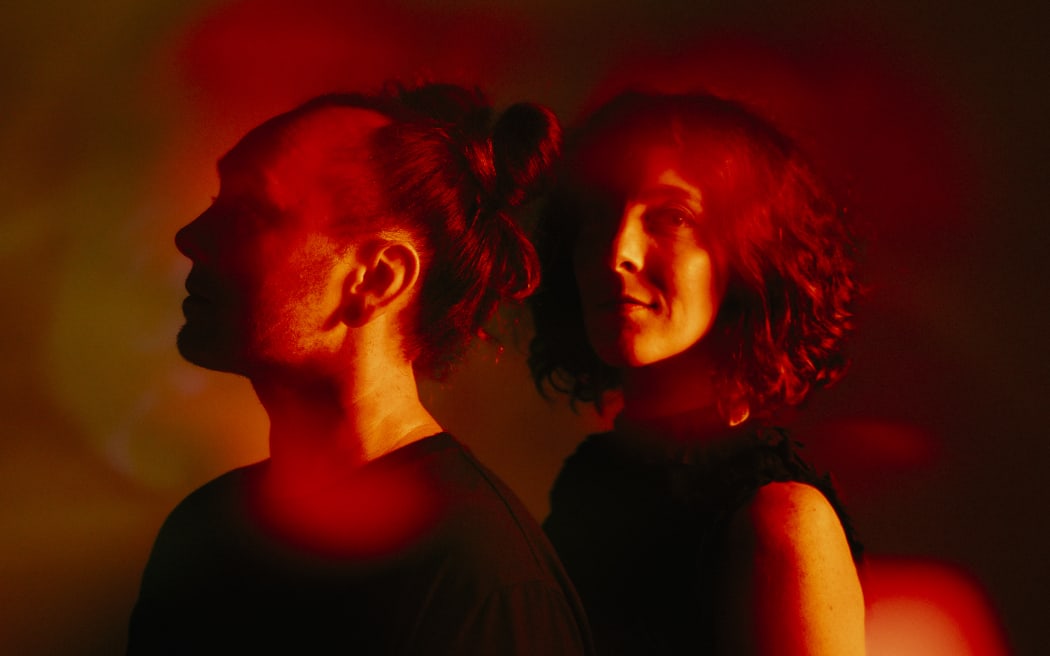
Photo: Supplied
A few things distinguish local duo Aro from their contemporaries. They sing in two languages, for one, as Charles Looker was fluent in te reo before he was in English, and Emily Looker studied Maori at Te Wānanga o Aotearoa.
The husband and wife duo also invest their music with a large amount of research, as the songs on their latest album, He Rākau, He Ngārara, used funding from Creative NZ to hone the themes in each one.
That title translates to ‘a tree, an insect’, following work from the pair on water, and birds. They merge this knowledge with waiata that skip between jazz, folk, and other genres, but always sound like an invitation to lean in, and hear a well crafted story.
Aro have attracted some awards attention over the last few years: long-listed for a Silver Scroll, and finalists for the Maioha Award, Waiata Māori Music Awards, and Best Children’s Song Award.
The songs here feel just as kid-friendly, in that they’re educational and unaggressive. Charles has a background in kapa haka, while Emily performed in jazz bands at school, playing saxophone and singing.
The jazz part of the equation can be heard in fits and spurts, but a more important part of their background might be Charles growing up in Kohanga Reo and Kura Kaupapa Māori. The stories he learned about the natural environment still serve as inspiration.
‘Mokomoko’, which we just heard, translates as ‘lizards’, and ‘Tātarakihi’ as ‘cicadas’. The track includes the sound of the insect alongside brass flourishes.
The liner notes for He Rākau, He Ngārara specify that each song was written with input from members of Charles’ iwi or hapū. The Lookers told Stuff they took inspiration from Ihirangi Heke, the developer of the Atua Matua Māori Health Framework, who talked about the signs that convey changes in the environment.
This led to the pair’s work on birds and water, and now trees and their surrounding ecosystems. To narrow down the list, they focused on the five trees mentioned in the story of Maui and Mahuika. In that story Maui steals fire from Mahuika’s fingernails.
Midway through the album, the palette dramatically shifts for the song ‘Namupoto’, beginning with a synth pulse, and switching from acoustic to electric. The aesthetic fits the name, which refers to sandflies, particularly the sound of one buzzing guitar.
The connection between subject and song is as immediate on ‘Pounui’, named after a taonga puoro belonging to Warren Maxwell of Trinity Roots. It was performed by musicians including Maxwell and Laughton Kora, and is literally the sound of the rākau the album is named after.
One of the songs on He Rākau, He Ngārara is particularly significant for Aro. ‘Tōtara’ took inspiration from the whakatauki “A great tree has fallen in the great forest of Tāne”.
The Lookers spent time with Zane Wedding, a tree expert who taught them about the tōtara’s significance; the way it acts as a canopy, and is sturdy enough to be made into a waka once it finally falls after 100s of years.
This can be applied to a loved one, and the way they live on after death: as the Lookers say, “in our stories”. The track is dedicated to a family member who passed, and is a strikingly lovely act of remembrance.

